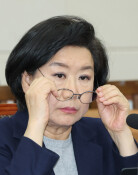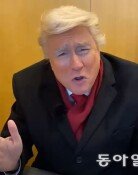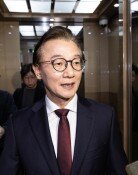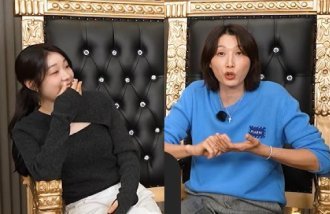Presidential candidates copy each other’s pledges to earn votes
Presidential candidates copy each other’s pledges to earn votes
Posted January. 18, 2022 07:53,
Updated January. 18, 2022 07:53
Presidential candidates and excessively copying each other’s pledges as long as they are deemed to earn more votes. Since the presidential candidate of the Democratic Party Lee Jae-myung announced a pledge on national defense to raise soldiers’ monthly wage to two million won at the end of last year, Yoon Suk-yeol of the People Power Party announced a single-line pledge that says ‘two million won monthly wage for soldiers’ this month. On the other hand, following Yoon’s August pledge to increase the private sector’s reconstruction floor area ratio to 500 percent, Lee put forward a pledge five months later to set four types of residential areas with the floor area ratio of 500 percent. The People Party’s candidate Ahn Cheol-soo’s pledge announced at a lecture on Wednesday to build Gyeongin Line and Gyeongin Expressway underground overlaps with the regional pledge previously put forward by both Lee and Yoon.0As candidates copy each other’s pledges in various ways – copying titles, core ideas, or entire content – it is hard to tell whose pledges they are.
The candidates are engaging in indiscriminate copying of pledges as they simply focus on raising their approval ratings without their own political philosophy or belief. As they try to use policies of interest to certain regions or groups as pledges, new pledges sometimes collide with the old ones.
Such practices of making pledges will lead to misaligned priorities of policies and a loss of direction across the nation. As some of the winning candidate’s pledges will emerge as top priorities of the new administration after the election, the efficient management of state affairs will be hindered. In addition, resources and national budgets will be wasted in the process to pursue poorly planned pledges that turn into core national policies.
In addition to making forced efforts to keep pledges, such excessive copying of pledges will lead to a situation where the majority of pledges will not be kept. According to the Citizens’ Coalition for Economic Justice, former President Park Geun-hye kept 41 percent of her pledges by the fourth year of her presidency while President Moon Jae-in only kept 18.3 percent of his pledges by the half-point of his presidency. While the direct reasons for such poor performance are the lack of willingness and political power to keep them and the ambiguity of the pledges, however, the biggest reason is the lack of physical time and resources to handle so many pledges. Copied pledges will be canceled as they collide with existing initiatives, and citizens with expectations will feel betrayed by the political circles, creating a vicious cycle. Copying other candidates’ pledges without vision will only worsen political distrust, which is already high.




![라면 먹고도 후회 안 하는 7가지 방법[노화설계]](https://dimg.donga.com/c/138/175/90/1/wps/NEWS/IMAGE/2026/01/23/133219600.3.jpg)


